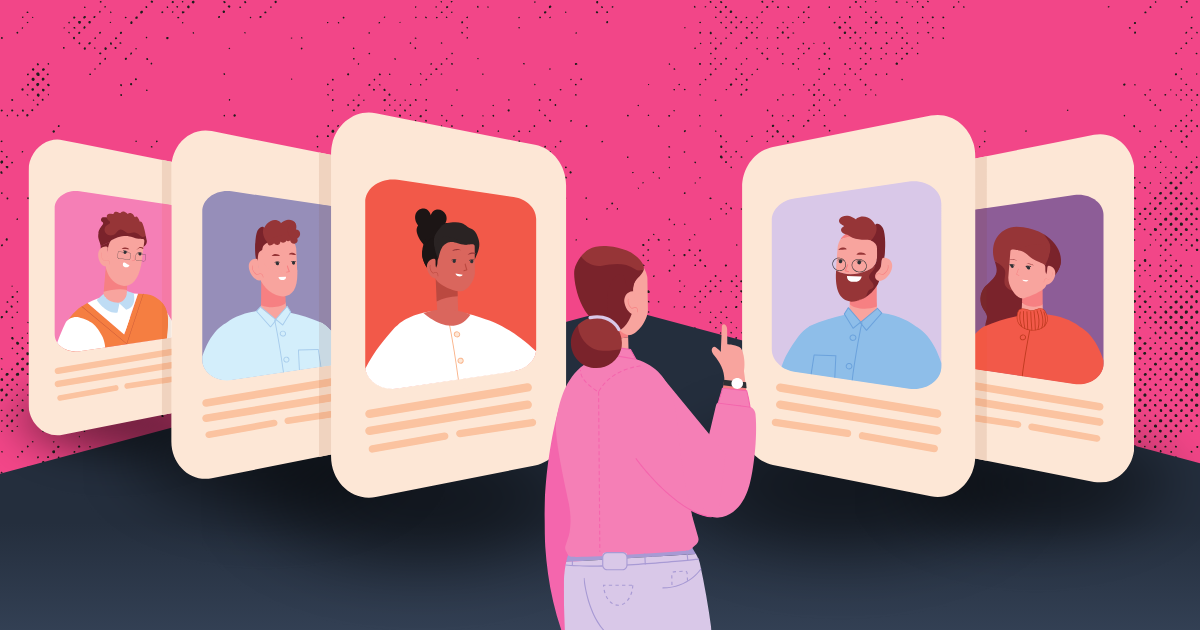In a world where ongoing personal and professional growth is critical, coaching has emerged as a transformative force in supporting individuals and teams. But what exactly is coaching, and how does it differ from other forms of guidance?
From understanding the fundamental principles of coaching to choosing the right coach and delving into specific coaching techniques, this article aims to answer these questions and shed light on the intricacies of coaching.
What is Coaching?

Pure Coaching is Asking Questions and Guiding Thinking, Not Advice-Giving:
At its core, coaching is about asking powerful questions and guiding individuals in their thinking processes. Unlike advisors who provide direct solutions, coaches facilitate self-discovery and empower individuals to find their own answers. It’s a process that nurtures personal insights and fosters a sense of ownership over one’s decisions.
Pure coaching represents a paradigm shift in how we approach personal and professional growth. By prioritizing inquiry over advice, coaching not only empowers individuals to find their own solutions but also cultivates a lasting capacity for self-discovery and guided thinking. As we navigate a world filled with complexities and uncertainties, the ability to tap into one’s inner wisdom to navigate ever-evolving challenges is more important than ever before.
Asking Powerful Questions:
At the heart of pure coaching is the art of asking powerful questions. Unlike mentors or advisors who may provide solutions based on their experiences, a coach refrains from offering direct advice. Instead, they employ a curious and probing approach, asking questions that encourage introspection and self-awareness.
Guided Thinking:
Pure coaching is not about leading individuals to predetermined answers; rather, it is a process of guided thinking. A coach facilitates a structured exploration of thoughts, values, and goals, enabling individuals to arrive at their conclusions and decisions. This method allows a sense of ownership over one’s choices and a deeper understanding of self.
It’s important to note that not all coaching is based on this pure coaching model. Many coaches use a combination of pure coaching and more traditional advice-giving. There is not necessarily a right or wrong approach, but it should be a factor in considering who you hire to coach you. Your preference should lead the way.

Coaching is for Everyone, and Not Industry Specific:
One of the defining features of coaching is its inclusivity. Whether you’re an executive striving for leadership excellence, an entrepreneur navigating the complexities of business, or an individual seeking personal growth, coaching offers a versatile and personalized approach. It is not confined to a specific industry; rather, it is a tool for anyone seeking positive change.
Coaching is Not Therapy:
Coaching and therapy each play pivotal roles in supporting individuals on their journey toward personal growth and well-being. Recognizing that coaching is not therapy is key to making informed decisions about which approach best suits individual needs.
Understanding Coaching:
Focus on the Present and Future:
One of the key differentiators between coaching and therapy lies in their focus. Coaching primarily addresses the present and future, concentrating on setting and achieving goals, enhancing skills, and driving positive change. It is forward-looking and action-oriented.
Goal-Oriented Approach:
Coaching is inherently goal-oriented, with the client and coach collaboratively setting specific objectives. Whether in the professional or personal realm, coaching seeks to propel individuals toward tangible outcomes, fostering accountability and progress.
Enhancing Performance and Skills:
Individuals seek coaching to elevate their performance, whether in leadership roles, career transitions, or personal growth endeavors. The coaching process involves identifying strengths, addressing challenges, and honing skills to optimize one’s potential.
Understanding Therapy:
Focus on the Past and Present:
Unlike coaching, therapy often delves into the past to address and heal psychological wounds. Therapists work with clients to explore emotions, understand patterns of behavior, and facilitate healing from emotional or psychological situations.
Recovery and Emotional Well-being:
Therapy is primarily concerned with emotional well-being and recovery. It provides a safe space for individuals to navigate and resolve internal struggles, traumas, or mental health issues. Therapists employ various therapeutic modalities to support clients in their journey toward emotional resilience.
Medical and Clinical Expertise:
Therapists, often licensed professionals, possess specialized training in psychology or counseling. They bring clinical expertise to diagnose and treat mental health conditions, offering a range of therapeutic interventions tailored to individual needs.
When Coaching is Not Therapy:
Dr. Suman King is both a coach and a psychologist. As a trained clinical psychologist, she can provide powerful perspective and insight. However, when coaching a client, she stays in the role of coach.
No Clinical Diagnoses:
Coaches do not diagnose or treat mental health conditions. If a client presents with issues that require therapeutic intervention, coaches will refer them to a licensed therapist or mental health professional.
Actionable and Forward-Focused:
Coaching is about taking action and moving forward. While it acknowledges past experiences, its primary focus is on creating a roadmap for achieving short and long-term goals. It’s about leveraging strengths and skills to navigate challenges and drive positive change.
Client-Centered Decision Making:
In coaching, clients are considered naturally creative and resourceful. The coach facilitates the process of self-discovery and decision-making, empowering clients to take ownership of their choices and actions.

Why Psychologists Make the Best Coaches
In choosing a coach, you’ll be presented with countless options. In fact, the field of professional and personal coaching is growing fast. Warning – not all coaches are the same – in their approach, training, or delivery.
With a diverse training background and experience in numerous industries, Dr. Suman King leans into three fundamental philosophies in her coaching.
- The concepts of positive psychology
- A deep understanding of human behavior
- Developing emotional intelligence
As a psychologist, Dr. King brings a wealth of education and experience to her coaching practice. In fact, The Harvard Business Review article, “The Very Real Danger of Executive Coaching,” underscores the effectiveness of psychologists as coaches, emphasizing their ability to navigate the complexities of human behavior. According to the author, coaches without a psychology background, “…downplay or simply ignore deep-seated psychological problems they don’t understand. Even more concerning, when an executive’s problems stem from undetected or ignored psychological difficulties, coaching can actually make a bad situation worse.”

Why Positive Psychology?:
Choosing a coach who integrates positive psychology into their practice is an investment in transformative growth. Through the lens of positive psychology, individuals embark on a journey of self-discovery, resilience-building, and the cultivation of a mindset that not only propels them toward success but also enriches their overall quality of life.
Positive psychology is a branch of psychology that focuses on the study and cultivation of positive emotions, strengths, and overall well-being. Unlike clinical psychology, which often centers on addressing problems and pathologies, positive psychology accentuates the positive aspects of human experience, aiming to enhance life satisfaction and foster individual flourishing.
Cultivating Strengths and Resilience:
A positive psychology coach works to identify and cultivate an individual’s strengths. Instead of dwelling on weaknesses or areas in need of change, the focus shifts to harnessing inherent capabilities and talents.
Mindset Shift Towards Possibilities:
Positive psychology coaches encourage a shift in mindset from a focus on limitations to an exploration of possibilities. Coaches employing this methodology guide clients to reframe challenges as opportunities for growth, unlocking a mindset that propels them forward using proactive goal setting.
Enhancing Life Satisfaction:
The ultimate goal of positive psychology is to enhance overall life satisfaction. A coach versed in this approach collaborates with clients to set meaningful goals aligned with their values, promoting a sense of fulfillment that extends beyond specific achievements.
Creating a Positive Feedback Loop:
Positive psychology emphasizes creating a positive feedback loop in clients’ lives. By recognizing and celebrating achievements, no matter how small, individuals cultivate a sense of accomplishment that moves and inspires them. This continuous cycle of positive reinforcement contributes to sustained motivation and progress.
Positive psychology is a cornerstone of effective coaching. By focusing on one’s positive qualities — well-being, happiness, satisfaction, and the ability to thrive in our day-to-day lives – coaching shifts from challenge-driven to possibility-driven.

Focus on Emotional Intelligence Work:
Emotional intelligence (EI) refers to the ability to recognize, understand, and manage one’s emotions, as well as navigate interpersonal relationships effectively. Coaches who prioritize EI delve into these facets of human experience, recognizing the profound impact emotions have on decision-making, communication, and overall success.
Enhanced Self-Awareness:
Coaches emphasizing emotional intelligence guide individuals in developing a deep understanding of their own emotions and how these emotions influence their thoughts and behaviors. This heightened self-awareness serves as a powerful tool for personal growth and effective decision-making.
Effective Communication:
Emotional intelligence fosters effective communication by enabling individuals to express themselves clearly and empathetically. A coach who emphasizes EI work equips clients with the skills to navigate difficult conversations, build strong relationships, and lead with authenticity.
Relationship Building:
Successful individuals understand the importance of building meaningful connections. Coaches focusing on EI guide clients in fostering positive relationships, whether in leadership, collaboration, or personal interactions. The ability to connect with others on an emotional level is a key determinant of overall success.
Stress Management and Well-being:
Emotional intelligence contributes significantly to stress management and overall well-being. A coach who prioritizes EI work provides tools and strategies for handling stress, promoting mental resilience, and fostering a positive mindset that contributes to long-term success and fulfillment.
What’s in Dr. King’s Coaching Toolkit
Every coach uses their own tool kit. Many tools are universal. Some coaches develop their own tools based on their experiences over time. The following are several tools that Dr. King employs in her coaching practice.
Career Transitioning:
In every career, there are occasional transitions – from one position to another and often up the hierarchical ladder. A common theory, called the Peter Principle, addresses the challenges that arise when a person is promoted beyond their current skills and abilities. Nearly every professional will end up in a situation like this at some point. Plus, nearly every supervisor will end up supporting someone in this position.
Whether you are addressing your own abilities or someone you supervise, coaching will help you recognize and create a plan for the areas of needed growth. It will also help you transition from tactical jobs where you are concerned with a to-do list to more strategic jobs where you are concerned with the bigger picture. This insight is invaluable for professionals aiming to thrive in their careers.
Addressing Your Inner Critic:
The internal dialogue, often critical and inhibitory, is a common hurdle in personal and professional development. In the book “Chatter,” author Ethan Kross says, “If we scan the situation and conclude that we don’t have the wherewithal needed to handle things, that leads us to appraise the stress as a threat. If, on the other hand, we appraise the situation and determine that we have what it takes to respond adequately, then we think of it as a challenge.” In coaching, you’ll explore what your inner critic is telling you and how to change your mindset to ultimately change the outcomes.

Work Breakdown Structures and The Airplane Strategy:
In coaching, you will be introduced to theories and philosophies that help you understand and deliver on your work in new ways. For example, Dr. King uses two unique approaches to help clients understand how to lead larger projects.
First, Work Breakdown Structure (WBS) is a tool that helps break work into smaller tasks. It is used to make the work more manageable and approachable. The Project Management Institute (PMI) Project Management Book of Knowledge (PMBOK) defines the Work Breakdown Structure as a “deliverable-oriented hierarchical decomposition of the work to be executed by the project team.”
Second, Dr. King has developed The Airplane Strategy to help clients better understand the value of cross-department communications, and strong leadership in project management.
Conclusion:
Coaching is a dynamic and versatile tool that empowers individuals to unlock their potential. Choosing the right coach is a crucial step, and considering factors like positive psychology and emotional intelligence can significantly enhance the coaching experience. As we journey through the nuances of coaching, it becomes evident that this personalized approach to growth and development is not just a service; rather it is a transformative partnership paving the way for a brighter and more fulfilling future.
